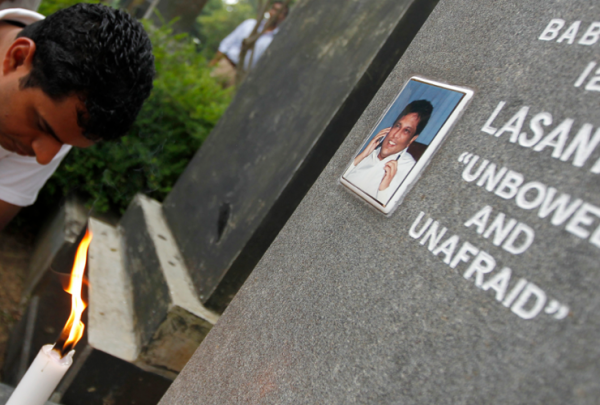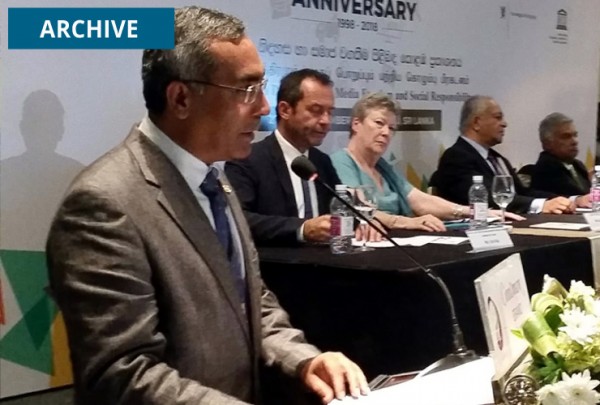As Sri Lanka appears to be nearing the end of a vicious civil war with Tamil rebels, the International Press Institute is appealing to the international community to pressure the government for increased transparency in the embattled region, and justice for journalists killed during years of conflict.
Journalists have not been allowed free access to the north of Sri Lanka, where government soldiers and rebel fighters have entered a final stand-off. More than 50,000 civilians are reportedly trapped in the war zone.
“As Sri Lanka embarks on the long road to recovery, the government and the international community cannot afford to ignore the need to strengthen the rule of law”, said David Dadge, director of the International Press Institute. “This should include a firm commitment to press freedom, giving journalists access to the areas most affected by the fighting, as well as vigorously investigating years of unsolved attacks on journalists who, like so many others, were the innocent victims of this brutal conflict”.
IPI’s appeal comes as international representatives prepared to meet in Colombo to work out a business and investment package to help rebuild Sri Lanka after 25 years of insurgency led by the Liberation Tigers of Tamil Eelam, or Tamil Tigers.
Sri Lanka holds one of the world’s worst records when it comes to prosecuting killers of journalists. Sixteen journalists have been killed in Sri Lanka since 2004, according to IPI’s “Death Watch”. In a January 2009 report, IPI and other press freedom organizations pinpointed impunity as a major problem, noting that there are few serious investigations of attacks on journalists by the authorities and none of the killers are brought to trial.
For example, family members of Sunday Leader editor Lasantha Wickremetunge — a critic of both the Sri Lankan government and the Tamil Tigers – told IPI that there has been no serious investigation into his murder on 8 January.
IPI’s Justice Denied Campaign has highlighted the problem of impunity by calling for justice for another slain news worker, Subramaniyam Sukirtharajan. The photojournalist was killed in 2006 soon after the Sudar Oli, the popular Tamil-language daily for which he worked, published his photographs of five murdered Tamil high school students. The photographer’s killers remain at large.
Staff members at Sudar Oli have repeatedly been targeted because of the paper’s allegedly pro-Tamil stance. Sudar Oli editor Nadesapillai Vithyatharan was detained on 26 February under anti-terrorism laws, and accused of having links with Tamil Tiger rebels. He was released for lack of evidence on 24 April.
The EU-Sri Lanka Business Summit, to be held 5-6 May in Colombo, will bring together representatives of the Sri Lankan government, the international donor community and the private sector to explore commercial, trade and investment opportunities in the country.
“Respect for the rule of law and for press freedom are vital elements of any stable democracy”, Dadge said. “The donor and business communities have a unique opportunity to encourage the Sri Lankan government to respect these fundamental principles, which can encourage economic stability by creating an environment conducive to successful investment”.


